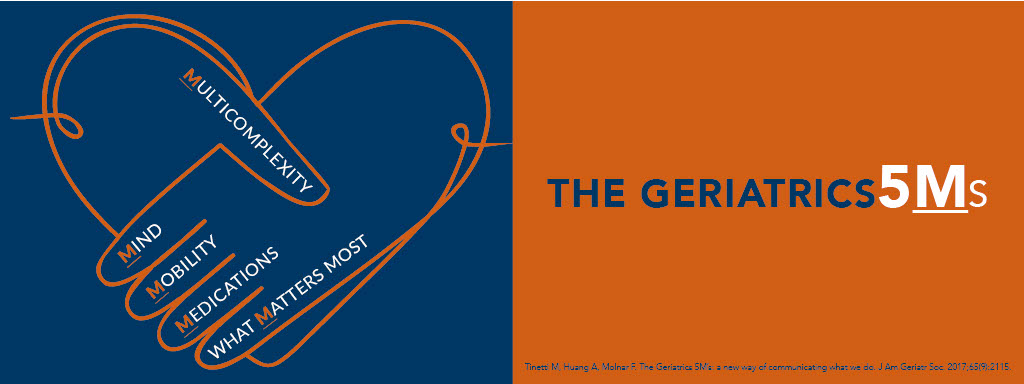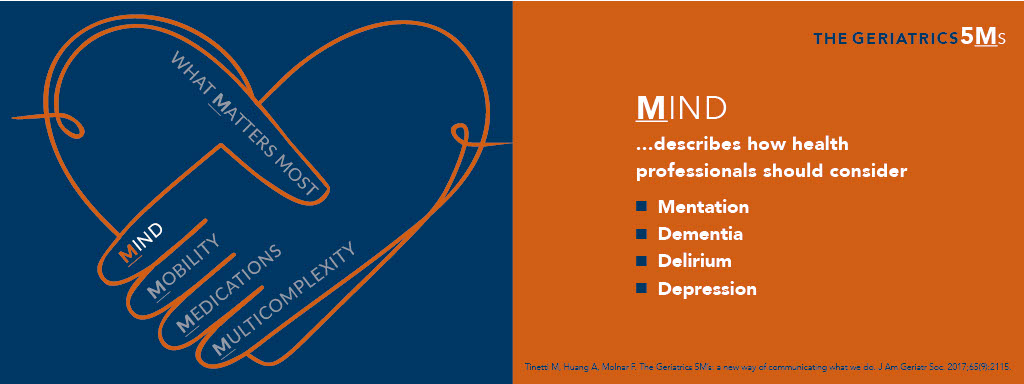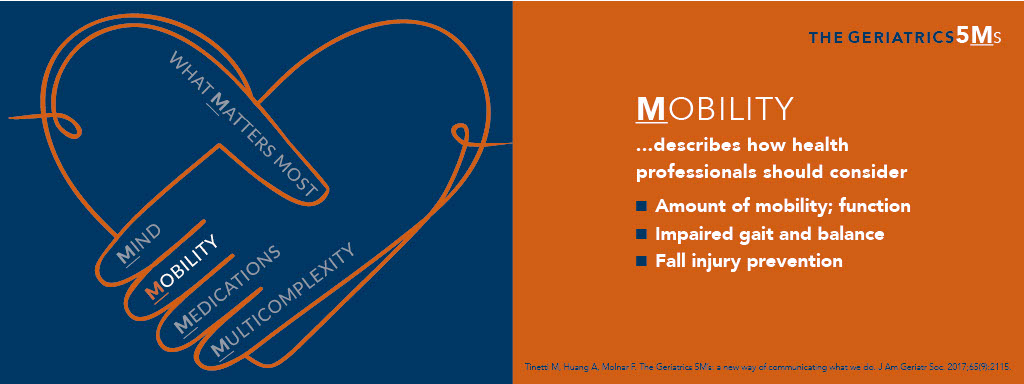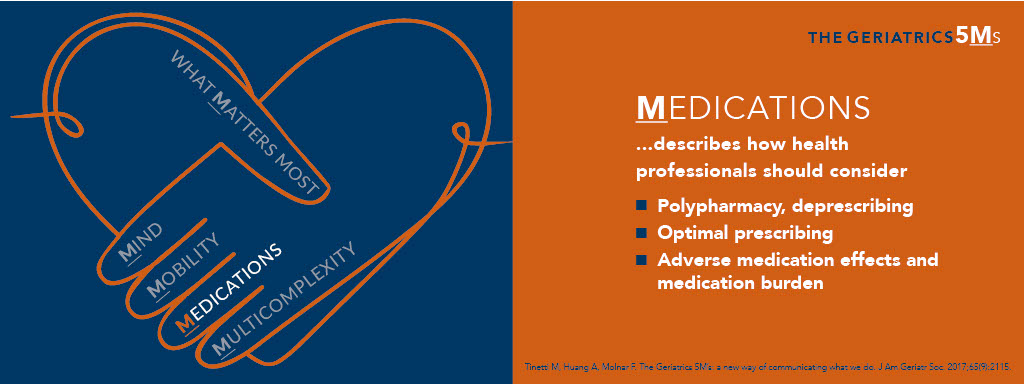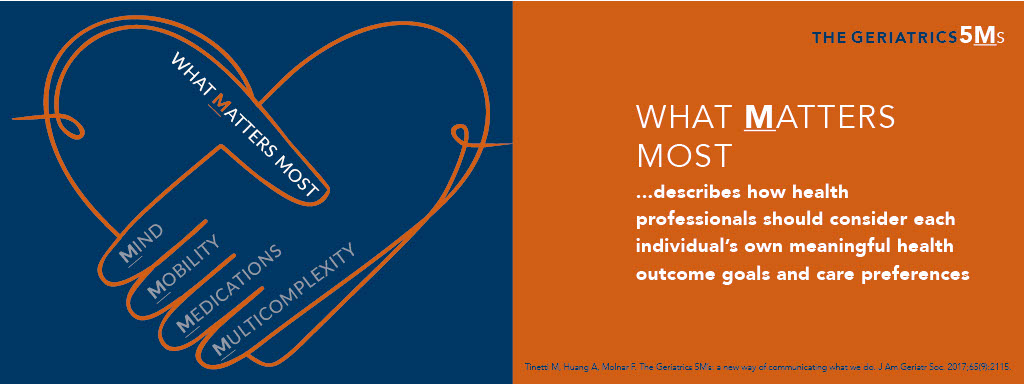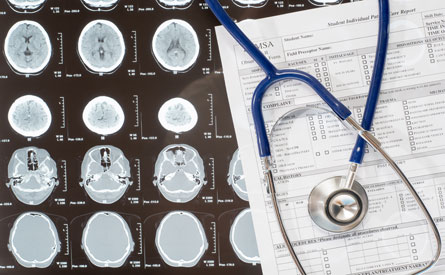A health system is "age friendly" when...
A health system is “age friendly” when it’s expertly designed to coordinate all our care as we age, while also making sure our personal needs, values, and preferences are at the heart of that care. Age-friendly health systems pay particular attention to:
- Providing older adults the best care possible.
- Reducing some of the specific harms older adults face more often than others.
- Ensuring older adults, our families, and our caregivers are satisfied with care.
- Improving the value of care for us all, including the professionals who make that care possible.
Click here for a list of age-friendly health systems.
How do age-friendly health systems achieve their goals?
By focusing on what geriatrics specialists call the “4Ms” that make their expert care so unique. These 4Ms include:
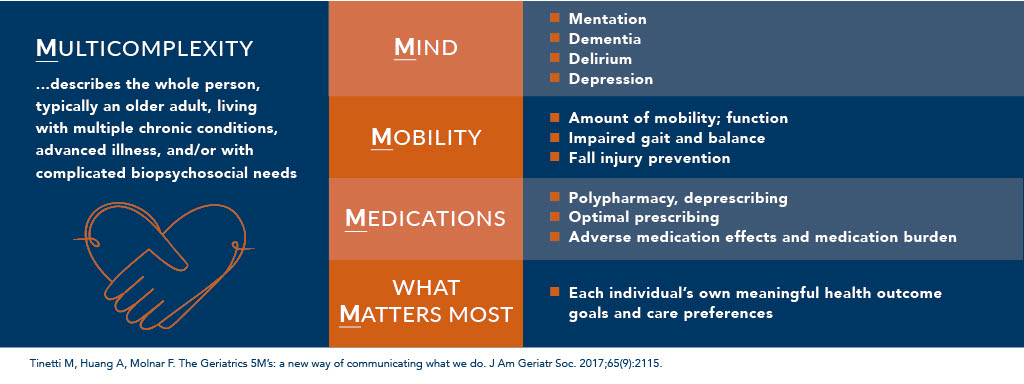
- Knowing what Matters to us as older adults when it comes to making healthcare decisions;
- Reviewing, reducing, and removing Medications that may cause harm or are unnecessary;
- Improving care for the Mentation (or the Mind) by addressing critical problems like dementia, delirium, and depression; and
- Promoting Mobility, or the medical term for being able to move (on our own or with help).
Recently, geriatrics experts also identified attention to Multi-complexity—or the need to manage multiple health conditions at once—as another critical part of high-quality, person-centered care for older people. Together, these areas of expertise are sometimes referred to as the “5Ms©” that make geriatrics—and age-friendly health systems—so unique…and so important!
In this section of HealthinAging.org, you’ll learn more about making the most of age-friendly care for your own 5Ms, including ways to choose tests, treatments, and even care settings wisely.

